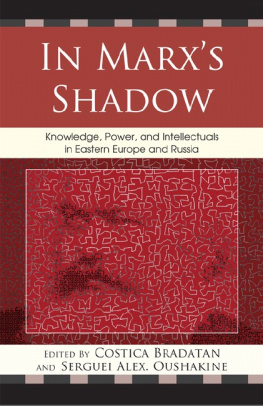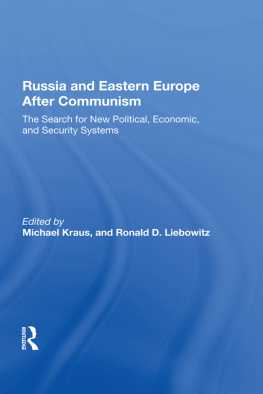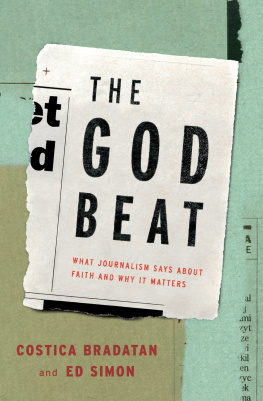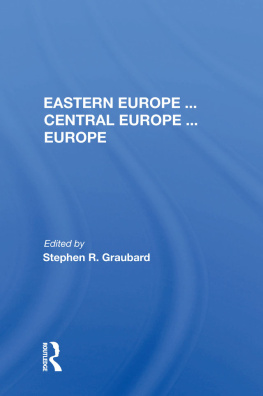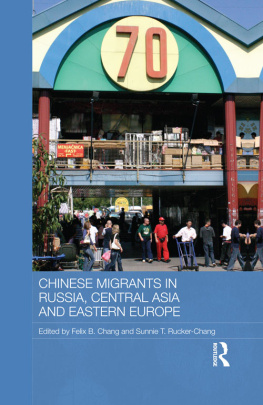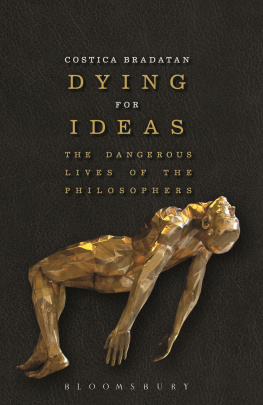About the Contributors
Clemena Antonova (D.Phil., Oxford University, 2006) works on Russian critiques of the medieval icon. At present, she is a fellow at VLAC, the Centre for Advanced Studies at the Royal Flemish Academy of Belgium. She recently published her first book Space, Time, and Real Presence in the Icon (2010).
Costica Bradatan (Ph.D., University of Durham, 2004) is assistant professor of honors at Texas Tech University. He has also taught at Cornell University and Miami University, as well as at several universities in Europe (England, Germany, Hungary, and Romania) and Asia (India), and has received research grants and fellowships from, among others, the Institute for Research in the Humanities (University of WisconsinMadison), The Newberry Library, and The Clark Library (UCLA). Bradatan is the author of The Other Bishop Berkeley: An Exercise in Reenchantment (2006) and of two other books in Romanian: An Introduction to the History of Romanian Phi-losophy in the 20th Century (2000) and Isaac Bernsteins Diary (2001). He has also guest-edited a special journal issue on Philosophy as Literature for The European Legacy (2009) and another on Philosophy in Eastern Europe for Angelaki (2010).
Aurelian Criuu (Ph.D., Princeton, 1999) is associate professor of political science at Indiana University, Bloomington. He is the author of several books including Liberalism under Siege (2003; Choice Outstanding Academic Title Award) and In Praise of Moderation (2006; in Romanian). He has also edited several books including Madame de Stals Considerations on thePrincipal Events of the French Revolution (2008); Tocqueville on America after 1840: Letters and Other Writings (with Jeremy Jennings, 2009); and America through European Eyes (with Jeffrey C. Isaac, 2009). He has received awards, fellowships, and grants from several institutions including the Institute for Advanced Study in Princeton, the American Council of Learned Societies, and the Earhart Foundation. In 2000, he won the American Political Science Associations Leo Strauss Award for the best doctoral dissertation in political theory.
Mikhail Epstein is Samuel Candler Dobbs Professor of Cultural Theory and Russian Literature at Emory University (Atlanta). His research interests include cultural and literary theory, the history of Russian literature and philosophy, Western and Russian postmodernism, and new methods and interdisciplinary approaches in the humanities. He is the author of eighteen books and more than five hundred essays and articles, translated into fourteen languages, including After the Future: The Paradoxes of Postmodernismand Contemporary Russian Culture (1995); Transcultural Experiments: Russianand American Models of Creative Communication (with E. Berry, 1999); and Cries in the New Wilderness: From the Files of the Moscow Institute of Atheism (2002). Epstein is the recipient of many awards, including the Andrei Bely prize (1991), Social Innovations Award (1995), International Essay Contest (1999), and Liberty Prize (2000).
Elena Gapova is the founding director of the Centre for Gender Studies in the European Humanist University (Belarus/Lithuania) and associate professor in the Department of Sociology at Western Michigan University. She also taught at the Centre for Baltic and East European Studies (CBEES) at Sdertrn University, Sweden. She writes extensively on gender, nation, class, and intellectuals in post-Communism. She is the editor of, among others, Zhenshchiny na krayu Evropy (Women at the Edge of Europe) (2003) and coeditor of Over the Wall/After the Fall: Post-Communist Cultures throughan East-West Gaze (with Sibelan Forrester and Magdalena Zaborowska, 2004). Gapova is also a board member of the Slavic Review.
Letitia Guran (Ph.D., University of Georgia, 2005) works on topics in East-Central European literature, theoretical approaches to comparative literature, twentieth-century aesthetics, and comparative American topics. She has contributed to History of the Literary Cultures of East Central Europe, The New Central and East European Culture, The Comparatist, CLCWeb, Year-book of Comparative Literature. At present she is working on a project about multicultural American identity and a collective volume of essays entitled Post-Communist Trans-Atlantic Encounters, while teaching multiethnic literature at the High Point University, North Carolina.
Ivars Ijabs is a Ph.D. candidate and teaching associate in the Departement of Political Science, University of Latvia. He has studied philosophy and political science in Latvia, Germany, and Iceland. His main research interests include theories of civil society in modern political philosophy, as well as the history of political ideas in Eastern and Central Europe. Currently he works with the Commission of Strategic Analysis under the Auspices of the President of Latvia.
Natasa Kovacevic is assistant professor of postcolonial literature and theory at Eastern Michigan University. She is the author of Narrating Post/Com-munism: Colonial Discourse and Europes Borderline Civilization (2008). Her recent and forthcoming essays examine Cold War Orientalisms in critiques of communist regimes and current imaginings of multicultural collectivity in the EU.
Jeffrey Murer (Ph.D., University of Illinois at Chicago, 1999) is the Lecturer on Collective Violence, appointed to the Schools of Psychology and International Relations at the University of St. Andrews. He is also a research fellow to the Centre for the Study of Terrorism and Political Violence as well as to the Scottish Institute for Policing Research. Dr. Murer is the principal investigator for the British Councilsponsored European Study of Youth Mobilisation, which is being conducted in eleven countries across Nordic and Central Europe. His work has appeared in International Politics; Topique:Revue Freudienne; Psychoanalysis of Culture and Society; Nationalities Papers; and other journals.
Serguei Alex. Oushakine (Ph.D., Columbia University, 2005) is assistant professor of Slavic languages and literature and associate faculty in the Department of Anthropology at Princeton University. His current work in Eurasia explores how the collapse of state socialism has simultaneously undermined already existing communities and precipitated the emergence of new ones. In his book The Patriotism of Despair: Nation, War, and Lossin Russia (2009), Oushakine documents the importance of experienced or imagined traumas for creating postsocialist identities and meanings. His research interests also include postcolonial authoritarianism in Belarus and Kyrgyzstan, practices of late Soviet consumption, Soviet and post-Soviet documentaries, and the political mobilization of popular culture.
Vladimir Tismaneanu is professor of politics and director of the Center for the Study of Post-Communist Societies at the University of Maryland. He is the author of numerous books, including Reinventing Politics: Eastern Europefrom Stalin to Havel (1992; updated 1993); Fantasies of Salvation: Democracy,Nationalism, and Myth in Post-Communist Europe (1998); and Stalinism for AllSeasons: A Political History of Romanian Communism (2003). Together with Marc Howard and Rudra Sil, he is the editor of World Order after Leninism (2006). Most recently, he edited Stalinism Revisited: The Establishment ofCommunist Regimes in East-Central Europe (2009). In 2006, President Traian Bsescu appointed him chair of the Presidential Commission for the Analysis of the Communist Dictatorship in Romania. He coedited, with Dorin Dobrincu and Cristian Vasile,

